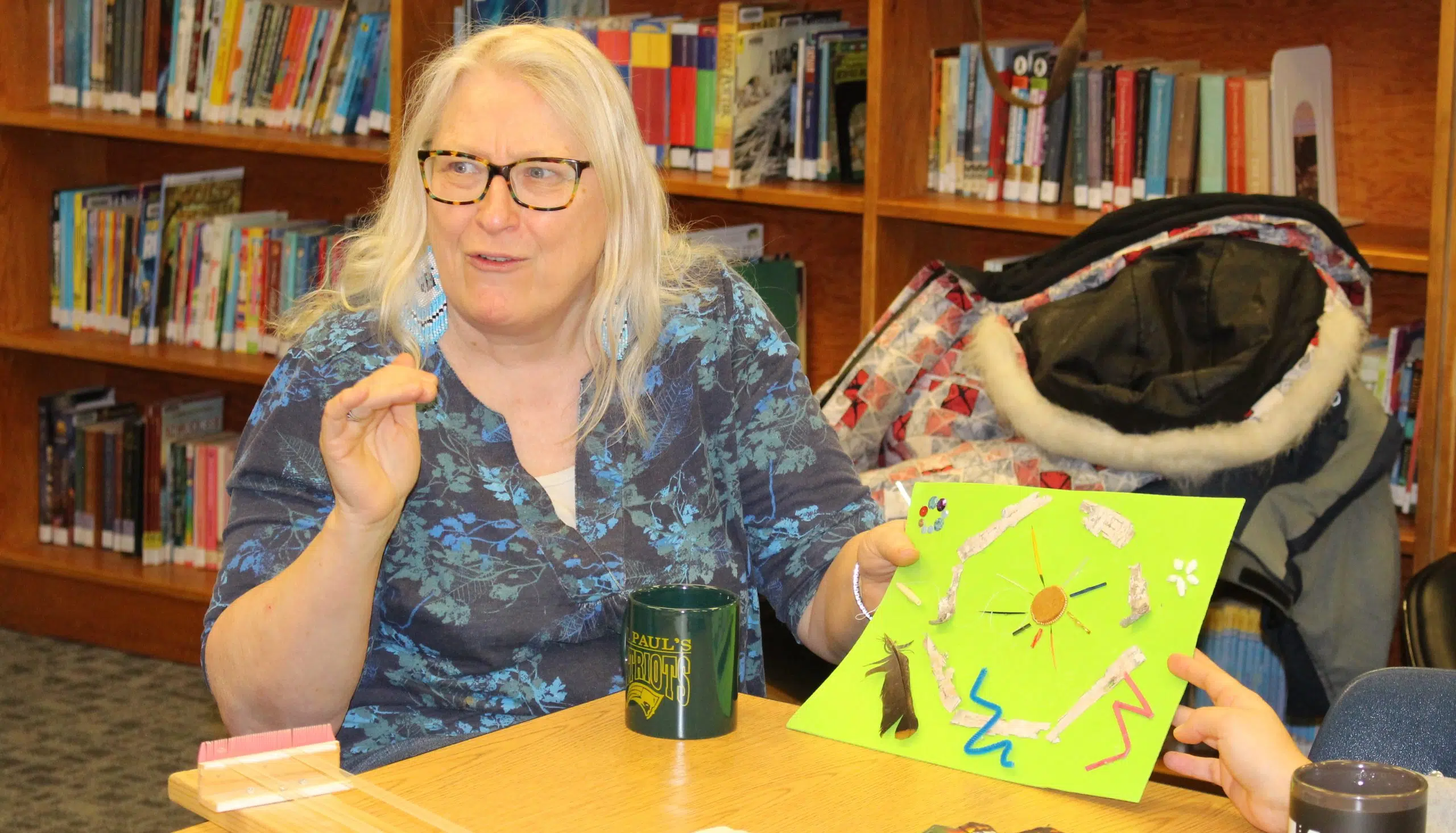
Creative dialogue part of reconciliation efforts
Sparking creative dialogue is the goal of a workshop series in La Ronge, titled Reconciliation Through Art.
The first class in the five-part series was held last night at the Alex Robertson Public Library by mother-daughter duo Anne and Jennifer Cook. They led a handful of participants through an art exercise called a squilt, which involved reflecting their images of reconciliation on a small felt square.
“Part of our activity tonight is exploring different venues and mixed media, which opens the door for broadening one’s perceptions and achieving a new understanding,” Anne Cook said. “That’s why we have a variety of media. We have porcupine quills, birch bark, leather, burlap, fur, paper, feathers, everything.”
Attendees weren’t told specifically how to utilize the materials, Anne said, and designed their projects based on their own creative ideas. She said the directions were open-ended because all participants had their own idea of reconciliation.


